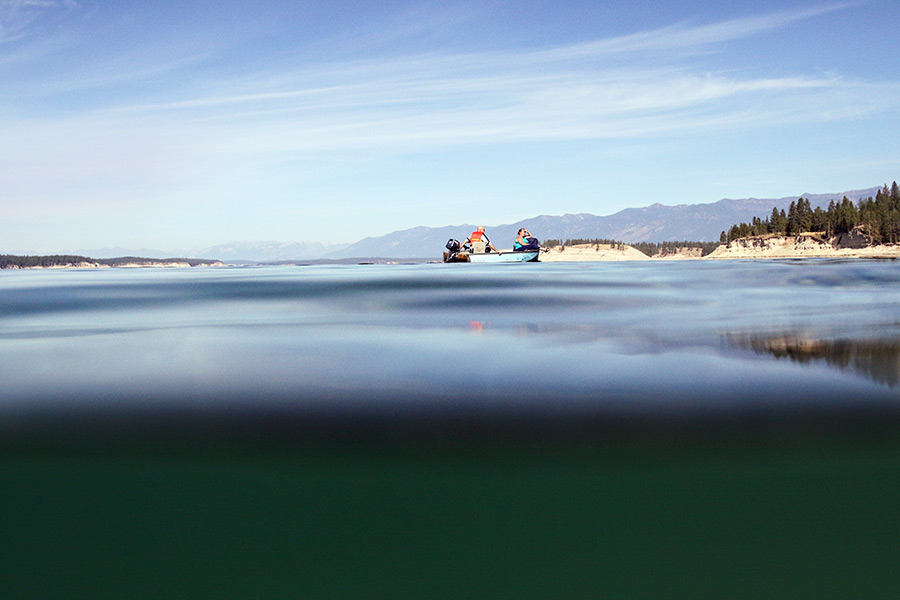U.S. Sen. Jon Tester is again urging the Obama administration to address pervasive concerns surrounding transboundary water-quality issues on Lake Koocanusa, the sprawling reservoir that straddles the border with Montana and British Columbia, where coal mines are leaching hazardous contaminants into the downstream watershed.
Scientists and researchers from a multitude of agencies are in the process of developing a site-specific plan for Lake Koocanusa as they continue to monitor the influx of selenium leaching out of upstream Canadian coal mines located on the Elk River, which rushes into the Kootenay River — spelled Kootenai on this side of the border — and converges in Lake Koocanusa.
Following a visit to Libby last week, Tester, a Democrat, wrote a letter to Secretary of State John Kerry urging the administration to furnish protections on Lake Koocanusa, a major driver of Northwest Montana’s economy and home to a suite of native aquatic species.
In the letter, Tester urged the administration to take steps to protect the Kootenai River watershed, which is threatened by the expansion of coal mining in the Elk River Valley of British Columbia.
“Montana and British Columbia share abundant natural resources and each of our respective economies depend on world-class opportunities for fishing and other forms of outdoor recreation,” Tester wrote. “The long-term health of the Elk River and Kootenai River watersheds is critically important, and we must address the full scope of potential impacts to Montana’s water quality.”
Tester said he sat down with local leaders in Libby last week to discuss the potential impact that the pollution of Lake Koocanusa would have on the region’s economy.
In 2014, Montana Department of Environmental Quality and U.S Geological Survey officials found increased levels of contamination in Lake Koocanusa, including selenium, nitrates, sedimentation, and other impairments associated with coal mining in Canada.
Last year, Tester was approached by local organizations and American Indian tribes to express concern that increased coal mining in British Columbia would further put the fish and habitat of Lake Koocanusa at risk, and last summer he relayed those concerns to Secretary Kerry, along with a call to action.
“As the state of Montana and British Columbia continue to work to address basin-wide water quality issues, we need to also have a coordinated focus at the federal level, increased involvement from impacted Indian tribes, and continued engagement with the government of Canada,” Tester wrote.
There are currently five coal mines in the Elk River Valley causing toxic pollution, all of which have launched expansion proposals that are in the exploration, permitting or development stage. Operated by Teck Resources Limited, the world’s second-largest exporter of metallurgical coal, the mines produce approximately 70 percent of Canada’s total annual coal exports and directly employ more than 4,500 full-time workers.
In May, the British Columbia Auditor General released a two-year audit chastising provincial mine regulators for “a decade of neglect in compliance and enforcement,” highlighting the coal mines above Lake Koocanusa as particularly egregious examples.
“We found almost every one of our expectations for a robust compliance and enforcement program within the (Ministry of Energy and Mines) and the (Ministry of Environment) were not met,” B.C. Auditor General Carol Bellringer wrote in the introduction to the report.
In February, leaders of the Confederated Salish and Kootenai Tribes formally requested that the federal government refer the impaired watershed to the International Joint Commission, joining with the Ktunaxa National Council and the Council of the Kootenai Tribe of Idaho in making the request.
